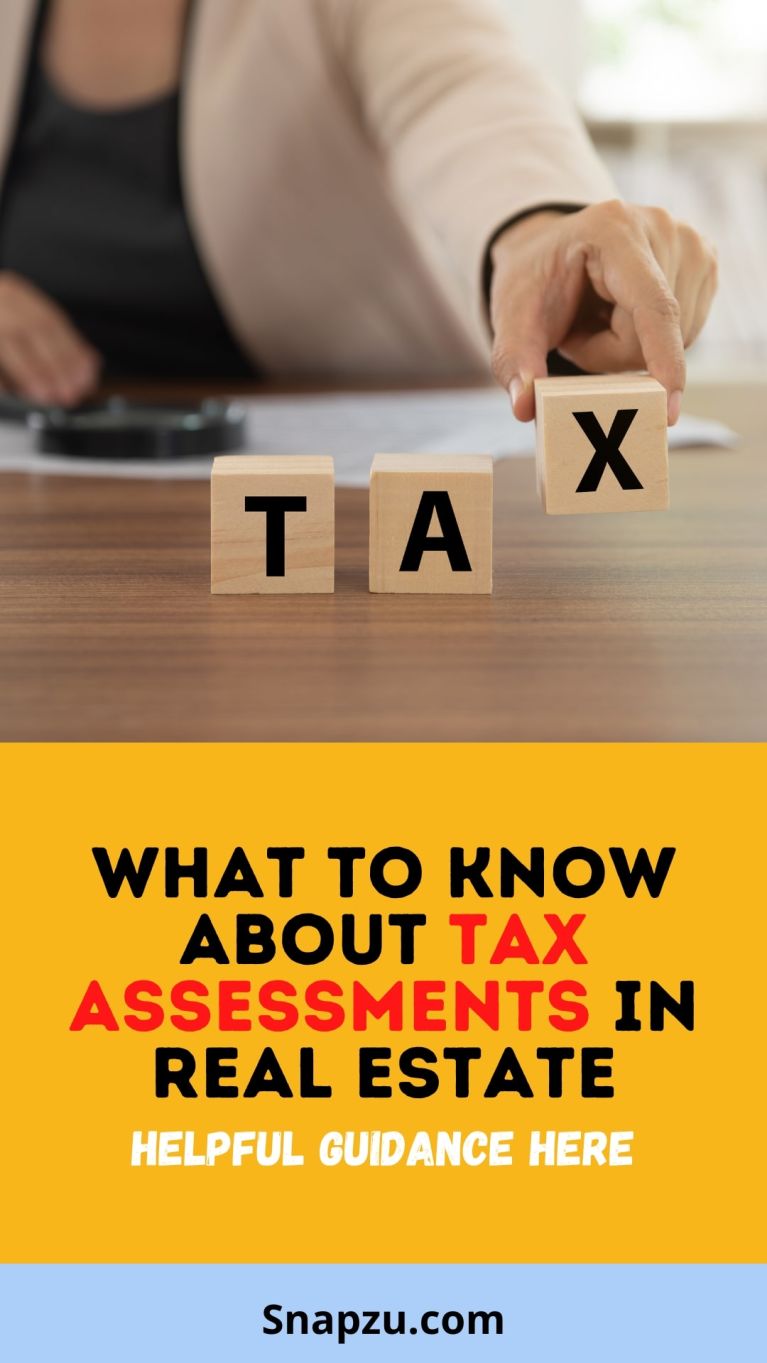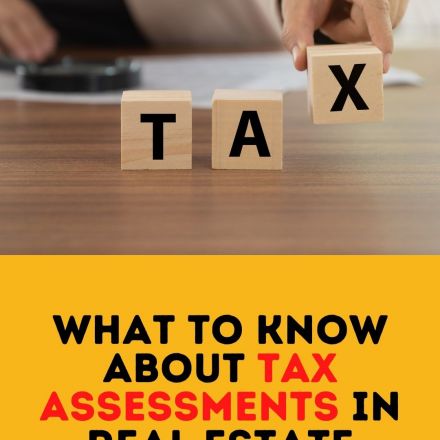What Are Tax Assessments in Real Estate
Do you know what a tax assessment is in real estate? You'll be expected to pay property taxes when you purchase a home. See everything you need to know about how property tax assessments are determined.
-
Tax Assessments in Real Estate Explained
 How do tax assessments work?
How do tax assessments work?
Understanding a Tax Assessment
When it comes to tax assessment in the context of property, the tax value is the calculated worth of the real estate.
Some core elements affect the tax bill, including the property size, type of construction, age, and location of your property.
This article will discuss everything you need to know regarding assessment taxes in real estate.
What is Tax Assessment?
The concept of tax assessment is interlinked with the worth attached to the local government's opinion of value. They use these assessed values to levy and gain tax money that is utilized to support your community. There are three types of specific values that fall under the segment of assessment.
The appraised value of your real estate depends on the fair market value, which is the price a willing seller would sell to a buyer interested in buying via an arm’s length transaction.
The assessed value is managed and multiplied by the local tax rate. The estimated value does not affect the real estate's appraised or fair market value; it only affects the tax bill.
The taxable value is the estimated worth, excluding any exemptions. The taxable value is multiplied by the jurisdiction’s tax rates to decide the tax that needs to be paid. If necessary, that number may be further determined by implementing exemptions or retributions.
Assessors do not set tax rates; they are applied by taxing jurisdictions. Public hearings are mostly done to discuss planned tax rates.
Significance of Tax Assessment
The property tax assessment helps decide how big the property tax bill will be, making it essential to understand how it's measured to predict how much you'll owe.
Knowing how a property tax assessment works can help people estimate their annual bill and potentially budget for it.
Some states have no property tax, but it varies from place to place. The usage of real estate also determines what tax one needs to pay. It can be any property, such as residential, apartment, commercial or agricultural, or even empty land.
How Property Tax is Calculated?
Tax assessments on real estate can be done through the property's estimated worth. The assessed value is formulated from both the land and the buildings on it.
Usually, tax assessors will determine the property every one to five years and charge the owner of the record the applicable rate, keeping in mind the average set by the taxing authority.
Assessors calculate that value using the local mill rate and the estimated real estate value (assessed value).
Ways to Assess Property Value
Taxes on real estate are calculated by multiplying the mill rate by the estimated worth of the owner’s property. There are some no property tax states as the real estate laws differ from places that require tax.
The calculated worth estimates the appropriate market value for your home. It depends upon the existing circumstances of the local real estate market.
The property assessor will examine the necessary details related to the property to decide its overall value.
To give you the final accurate assessment, the assessor will check out what comparable properties are selling for under the present market conditions, how much the replacement costs for the property would be, the maintenance costs for the property owner, any income you are driving from the property, and how much interest would be charged to purchase or construct a property as compared to yours.
There are three ways one can make a tax estimation on the property, so have a look and find out about them.
Methods For Establishing Assessed Property Values
Cost Method For Assessment
This works when the assessor decides the worth of your real estate depends on how much it would cost to change it. If the property is older, assessors determine the downturn that has taken place and how much the property would be worth if it were vacant.
The assessor deducts any realistic decline for the newly made properties and looks at the costs of building materials and labor, such as these figures in the property's final value.
Income Method For Assessment
This tax estimation depends on how much income one could make from the property if it were being leased. Using this income method approach, the assessor determines the costs of maintaining the property, insurance, and taxes, as well as the return that one could imagine from the property.
Sales Evaluation Method For Assessment
To perform a sale evaluation, the assessor estimates the property with the help of comparable sales in the community. This standard contains the site, the property's condition, maintenance, and actual market conditions.
The assessor then modifies the figures to explain specific changes to the property, including new additions.
Real Estate agents use the sales evaluation method when creating a competitive market analysis.
What If You Don't Agree With The Assessment?
Sometimes, you may not agree with the value assigned to your property by the local tax assessor. When this happens, you will need to appeal your tax bill. Appealing and winning your appeal is not always easy.
It will be essential to be armed with the proper information to dispute the assessor's opinion. When you cannot come to an agreement, you'll need to take your case to the state's appellate tax board.
Conclusion on Tax Assessments
It is significant to know about the worth of your property as it can help you in the long run in multiple ways. This write-up will be of some help to you in comprehending the concepts of tax assessment in real estate.
If you have any questions, get back to us, and we will help you with the information you are looking forward to.
About the author: The above article on tax assessments in real estate was written by Eliza Iris. Eliza is an experienced writer with over four years of experience covering the real estate, mortgage, and travel industries. Before beginning her writing career, Eliza worked as a luxury real estate agent in New York City.





























Join the Discussion